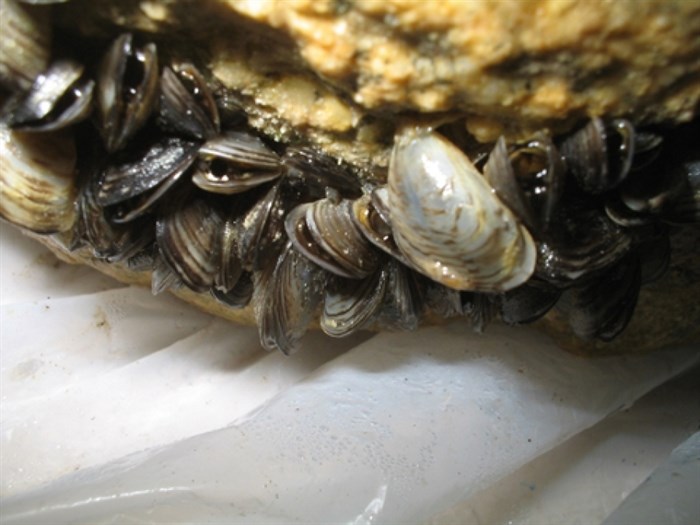
Zebra and quagga mussels are identified as two of B.C.'s most "unwanted species"
Image Credit: Invasive Species Council of B.C.
June 04, 2015 - 5:29 PM
OKANAGAN - The Okanagan Basin Water Board is using the province’s declaration of June as Invasive Species Action Month to prod it into increasing its role in the fight against zebra and quagga mussels.
“Awareness is great but action is better. The water board is doing all it can within its mandate to prevent the spread of these species into the Okanagan. Ultimately, it’s up to senior levels of government to bring in the appropriate laws and enforce them,” water board chairman Doug Findlater said in a press release.
In early May, the water board issued a seven-point position statement on invasive mussels, which emphasized it could not be held responsible for their control in the Okanagan, without accompanying measures by the provincial government.
The statement details the water board’s experience dealing with invasive milfoil in Okanagan Lake for the last 45 years. Since then, local taxpayers have put up $10 million while the province has contributed just $8 million, and none at all in the last 15 years, the board says.
“In light of the cost of the milfoil program, the (water board) believes the province must accept the costly responsibilities for mitigation and control of this invasive species which we have been warning against since 2012, and not pass them to our local taxpayers,” Findlater said.
While the water board launched the three-year $1.3-million Don’t Move A Mussel program in March, providing for six conservation officers and three roving inspection stations, the board wants to see five permanent inspection stations on the highways leading into B.C. from Alberta and full enforcement and inspection on the U.S.-Canada border.
Findlater said Alberta has ten permanent inspection stations and four mobile stations with aproximately 50 inspectors and three mussel sniffing dogs.
While current law in B.C. provides for as much as a $100,000 fine for transporting mussels into the province, Findlater said more enforcement is needed.
“We’ve made progress but it’s frustrating. There is a strong case for permanent inspection stations and it seems every other province and state gets that. Now we need to Province of B.C. to amp it up.”
Invasive mussels have been found in several U.S. states and Canadian provinces, primarily in the northeastern U.S. and Canadian provinces and the U.S. southwest. The water board says its research has estimated the cost to the local economy, should mussels become established in Okanagan, would reach $43 million per year.
To contact the reporter for this story, email John McDonald at jmcdonald@infonews.ca or call 250-808-0143. To contact the editor, email mjones@infonews.ca or call 250-718-2724.
News from © iNFOnews, 2015